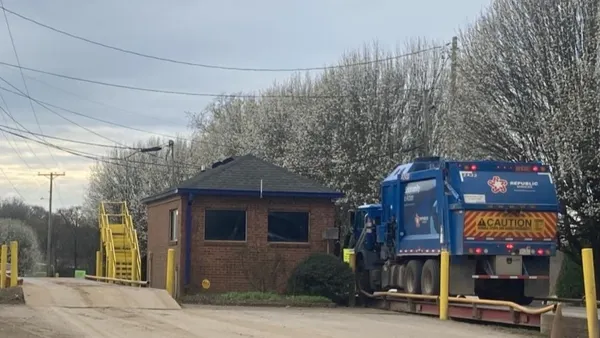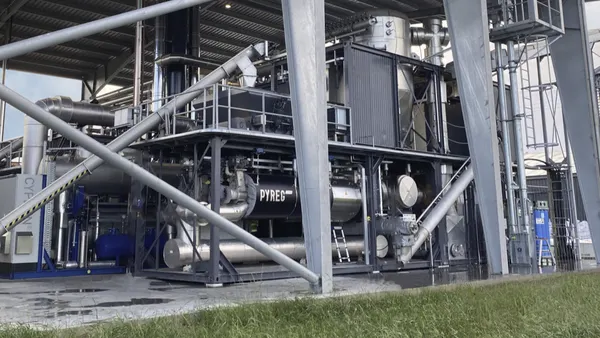Dive Brief:
- The Environmental Research & Education Foundation's (EREF) board of directors has announced the awards of three new research grants, according to a press release. The first is for $93,000 to a team from the University of Delaware and the University of California, Berkley. They will be further studying the tracer dilution method for measuring methane emissions at landfills.
- The second is for approximately $196,000 for a researcher from the Georgia Institute of Technology. The project will focus on immobilizing metals and chlorides in co-disposed flue gas desulfurization brines and bituminous coal fly ash.
- The third grant is for $141,700 and will go to a team from the University of Utah and University of Central Florida. They are working on new ways to co-manage anaerobic digester centrate and landfill leachate that can recover nutrients and treat the residues.
Dive Insight:
At a time when some in the academic community are concerned that federal research funding for environmental projects may be limited in the coming years, groups such as EREF could come to play an even more integral role in the industry. Last fall, the group signed a memorandum of understanding to work with the Solid Waste Association of North America on new research projects and they have been actively collaborating with many other companies and organizations for years.
With this latest round of grants, researchers will be helping to address some of the technical questions around how to measure whether landfills are meeting new emissions standards requirements and how to best manage coal ash, which is set to play a larger role in the industry as regulations change. Finding new ways to extract more nutrients from the anaerobic digestion process, while also treating leachate, will also be very relevant amid the shift toward organics diversion.
Coming up this year, EREF can also be expected to see results from its School Cafeteria Discards Assessment Project (SCrAP) that will contribute to the food waste conversation. In addition, the foundation's comprehensive analysis of municipal solid waste tonnage will help inform further understanding of the national waste landscape and could even affect how the Environmental Protection Agency conducts its own analysis in the future.









